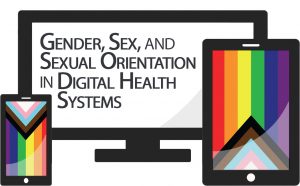Katelin Albert
Katelin Albert, PhD is an Assistant Professor in the Department of Sociology at the University of Victoria and is a medical and health sociologist whose research focuses on genders, sexualities, sexual health. Her work includes a focus on gendered health technologies such as the HPV vaccine, and looks at vaccination politics, health behaviours and health decision making, and sexual health & sex-education. She investigates how people navigate personal health and safety decisions, understandings of responsibility for one’s health, along with gendered norms in health practices and decision making. Recent projects include an investigation of B.C. residents’ COVID-19 vaccination attitudes and health behaviours, exploring people’s health information practices and what people do with public and scientific information.
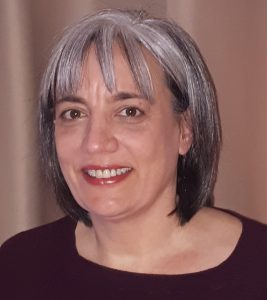
Marcy Antonio
Marcy Antonio PhD, MPH, BSc is a post-doctoral fellow at the University of Michigan. Her program of research is focused on health equity and digital technologies, and has been informed by her sixteen years of working in the community. In her doctoral studies at the University of Victoria, she conducted a transformative mixed methods study to explore the role digital technologies play in supporting social connectedness for people living with chronic obstructive pulmonary disease (COPD). She has had the privilege to be able to study, work and live across multiple traditional, ancestral, unceded lands of the Coast Salish peoples.
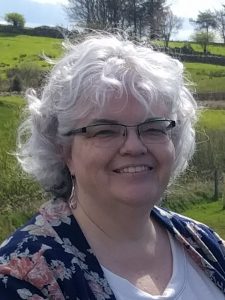 Karen Courtney
Karen Courtney
Karen Courtney RN, PhD is an Associate Professor in the School of Health Information Science at the University of Victoria. She held a National Library of Medicine Predoctoral Fellowship in Health Informatics Research while completing her PhD in Nursing. She has a background in designing, conducting and evaluating community-based health information technology projects. These projects have community-dwelling individuals at the center and focus on meeting the self-identified needs and values of patients and family caregivers. Community-based participatory research pilot work (funded by Clinical and Translational Science Institute and RAND Corporation) with low-resource older adults in Pittsburgh neighborhoods led to a five-year Agency for Healthcare Research and Quality funded study on community-based telehealth kiosks for health self-management by community-dwelling older adults. Her work with family caregivers and technology has been funded by the National Institutes of Health, National Science Foundation, and Canadian Partnership Against Cancer. She has the privilege to work and live on the traditional and unceded lands of the W̱SÁNEĆ people.

Kelly Davison
Kelly Davison MN, MSc, G.Cert-HTS, RN, CPMHN(C), CTSS is a Senior Standards SME with Canada Health Infoway, Community Coordinator with the Canadian Health Information Management Association and Doctoral Student at the University of Victoria. Kelly is actively involved in creating inclusive standards in health care as co-chair of Infoway’s Sex-Gender Working Group and as a participant in projects such as the HL7 Gender Harmony Project. Kelly’s work centres around Canada’s National Release Centre for health terminologies (i.e. SNOMED CT) and his research interests include structural bias, health equity, and bringing patient voice to systems design. Kelly has the privilege of living and working on the unceded territories of the Coast Salish Peoples.
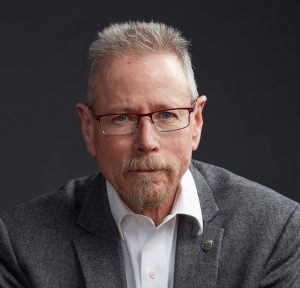 Dr. Aaron Devor
Dr. Aaron Devor
Dr. Aaron Devor, PhD, FSSSS, FSTLHE, has been studying and teaching about transgender topics since the early 1980s. He established and holds the world’s first Chair in Transgender Studies; initiated and hosts the international, interdisciplinary Moving Trans History Forward conferences; and founded and is the subject matter expert for the world’s largest Transgender Archives. He has published widely on transgender topics, including as an author of four books and editor of one. Devor’s opinions are frequently sought by the media, and he has delivered public lectures to audiences around the world, including more than 35 keynote and plenary addresses. He is a national-award-winning teacher, a Fellow of the Society for the Scientific Study of Sexuality, and an elected member of the International Academy of Sex Research. Dr. Devor is a former Dean of Graduate Studies (2002-2012), and a professor of Sociology, at the University of Victoria in British Columbia, Canada.
Claudia Lai
Claudia Lai, BSc Pharm, MSc, PhD, is a clinical researcher and health informatician. As an Early Career Scientist, her research builds on her professional experience as a registered pharmacist with 15+ years of policy implementation at the provincial level. Adopting a participatory approach, she works with patient partners and grassroots community groups to co-design ways to transform how care is provided and build more equitable health systems.
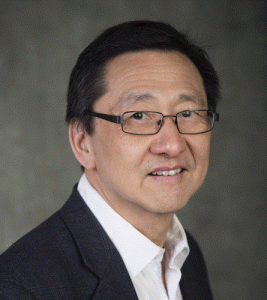 Dr. Francis Lau
Dr. Francis Lau
Dr. Francis Lau is a Professor in the School of Health Information Science at the University of Victoria. He has a PhD in Applied Sciences in Medicine from the University of Alberta with specialization in medical informatics. Francis has a diverse background in business, computer and medical sciences, with 14 years of professional experience in the health IT industry. He has led/co-led a number of large-scale CIHR funded initiatives including the pan-Canadian Health Informatics Research Training Program, New Emerging Teams in Palliative and End-of-life Care, and Partnership in Health Systems Improvement. During 2008-2013 he was the recipient of the eHealth Chair funded by CIHR/Infoway to establish an eHealth Observatory to examine the impact of health information system deployment in Canada. Dr. Lau’s current research covers eHealth evaluation, evidence-based health informatics, primary care informatics, patient portals, eHealth equity, social determinants of health standards, and health terminology standards.
Sam Liu
Sam Liu is an Associate Professor in the School of Exercise Science, Physical and Health Education, and the Director of the Digital Health Lab at the University of Victoria, Canada. research focuses on two main areas: 1) developing and evaluating the effectiveness of digital communication technology (e.g., mobile phones, social media) to promote physical activity and well-being, 2) finding innovative ways to monitor and predict behaviours and health outcomes using big data in order to better target and personalize digital health interventions. Dr. Liu is a Michael Smith Health Research Scholar and a research fellow at the Institute of Aging and Lifelong Health. He is an associated editor of Frontiers in Digital Health.
